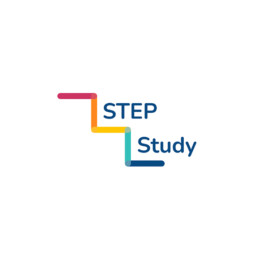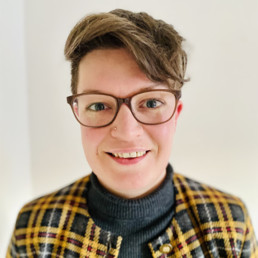Improving Support for LGBT+ Young People in Schools and Colleges

Written by STEP Study
The Schools Training to Enhance support for LGBT+ young People (STEP) study, funded by the TRIUMPH network, is being co-led by a research team at the ESRC Centre for Society and Mental Health, young people, and the Mosaic LGBT+ Young Persons Trust.
For many LGBT+ young people, school can be a place of growth—a “home away from home”—or an environment just as bad as the alternatives.
Bullying and peer victimisation experiences such as violence, anti-LGBT+ language, exclusion, and pressures to conform are all more common for LGBT+ students. These experiences adversely affect mental health and well-being, such as a sense of belonging, feelings of physical and psychological safety, and access to support. These things contribute to higher levels of problems such as depression, poor body image, self-harm, substance misuse as well as suicidal thoughts and behaviours among young people who identify as LGBT+.
Teachers and other staff who create more accepting environments can break this cycle. To support LGBT+ students, it is important that they understand LGBT+ issues and how being LGBT+ might affect students; and stand up for them and actively challenge bullying and discrimination, to create more accepting environments and help prevent mental health issues.
The Schools Training to Enhance support for LGBT+ young People (STEP) study, funded by the TRIUMPH network, is being co-led by a research team at the ESRC Centre for Society and Mental Health, young people, and the Mosaic LGBT+ Young Persons Trust. We are working together to:
- Identify what training is already available to school/college staff
- Understand what makes it easier or more difficult for schools to access training, and to find ways to support uptake for different schools/colleges.
- Improve training for secondary schools/colleges to better support LGBT+ pupils, focusing on what young people and staff think is important for school/college staff to know.
We want to ensure that our work is intersectional. We are learning more about how schools and colleges can better support the well-being of all young LGBT+ people. This includes minoritised racial and ethnic groups and faith communities, young people from low-income families, as well as young people living in rural and coastal areas.
So far, we have conducted interviews and focus groups with training providers in the UK to learn more about what their training covers, how it’s developed and links to student mental health. Through these conversations, we have started to identify barriers that schools face in taking up and implementing training to support LGBTQ+ students.
Next, young researchers will lead group discussions with pupils (aged 13-19 years) and school staff to identify what they think is important for school staff to know.
We will then hold two creative workshops, both co-led by young researchers and including:
- Students aged 13-19 years: to identify and design potential improvements to existing training.
- School/college staff and people who run teacher training courses: to design ways to increase training uptake by schools.
We will use our findings to recommend changes to schools training, and to plan a larger research project to test out these improvements in terms of their impact on young people’s mental health.
Get involved in the STEP study
We are currently recruiting i) young people (aged 13-19), ii) school staff and iii) providers of training to schools on LGBT+ issues to take part in an interview or focus group, and/or a creative workshop co-led by young researchers. Please get in touch if you would like to get involved and feel free to share with anyone who may be interested.
We would particularly like to hear from you if any of the following apply:
- You identify as LGBT+
- You identify as Black African, Black Caribbean, Asian, Latin American, Middle Eastern, from a mixed or any other racial or ethnic background
- You are a person of faith
- You live in a rural or coastal area
Why is the STEP study important to young people?
Juliet, student and young adult researcher in the STEP study coproduction team
“I think this project is really important to young LGBTQ+ people, because when we get together as a community, we see that there are huge school to school and regional differences, in how topics like relationships and sex education are addressed. And that this also influences young people’s obviously mental health and coming out journeys, or many of them struggling with their sexuality. A good school versus a bad school, can mean the difference between getting into a good university versus, and having a good job, versus not being very successful in life.”
Further information
To get involved in the project or for more information visit: http://www.stepstudy.co.uk/
You can also e-mail: steps@kcl.ac.uk
Follow us on Twitter: https://twitter.com/TheStepStudy or Instagram: https://www.instagram.com/thestepstudy/
Engaging and Empowering Students in DEI Work

Written by Lois Nethersell-Webb
Lois is a History teacher and DEI Lead at a rural Norfolk High School. In this role she is leading whole school training on diversifying the curriculum. Lois is also a founder of the Norfolk DEI Network and is passionate about encouraging and guiding young people to become change makers.
What kind of adults do we want our students to become? Do we want them to passively accept the status quo or do we want them to become active citizens who question the world around them? If the latter, then we must model and shape this behaviour in schools by providing them with opportunities to express their views and lead on causes that ignite their passions.
Students need to see that becoming involved in DEI work within schools or, indeed, wider society, is a sign of strength. When the government views standing up for marginalised groups as ‘woke’ we are fighting a populist narrative. Educators need to demonstrate to students that standing up to a friend who uses racist or homophobic slurs is not woke, it is strength. Educators need to demonstrate to students that calling out your mate who has made sexualised comments to a female student is not woke, it is strength. Educators need to demonstrate to students that refusing to mimic the accent of a new teacher is not woke, it is strength.
One way that schools can demonstrate active citizenship to the pupils in their charge is through setting up intersectional diversity groups. Whilst student groups focused on one particular protected characteristic, such as Pride Club, have their place, an intersectional group enables students with different protected characteristics, and their allies, to come together and support each other. We must create safe spaces for students to discuss concerns and lived experiences before supporting them to curate ways in which to spread their narratives across the whole student body.
Our student Diversity, Inclusion, Campaigns and Equality (DICE) group have been instrumental in raising awareness of a number of societal issues. Whether it be a cube of truth focused on male mental health or the lunchtime climate change protest, our students have thought of innovative and engaging ways to enlighten the wider student body and get them thinking about how change can happen. Showing students how to use their voice for good and how to channel their views is an essential part of their education.
All too often running student groups, like DICE, is left to chance. If there is a member of staff with a protected characteristic or who has a particular passion for DEI work then the student groups are formed. This should not be the case. LGBTQ+ teachers are tired of being the ones to start the Pride Clubs in schools. Black teachers are tired of being the ones who support students who have experienced racism. We need our allies. We need other educators, particularly white, able bodied, cisgendered male educators, to stand with us and help set up student groups. The power you hold is immeasurable. Help us set up our student groups and demonstrate that DEI work is the work of all.
To create a truly diverse, equitable and inclusive society all adults, no matter their lived experiences, must see tackling injustice and inequality as their responsibility. For this to happen we must start by showing students that DEI work is a collective responsibility. If you want to help your students become young changemakers – set up an intersectional student DEI group; neither you nor your students will regret it.

